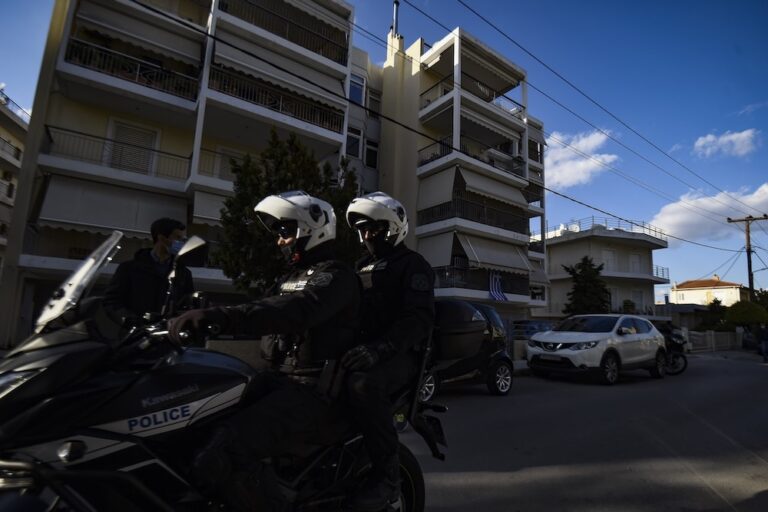(IPI/IFEX) – The following is an IPI letter to Greek Minister of Press and Information Dimitris Reppas, in response to his recent statements following the publishing of IPI’s annual World Press Freedom Review: Mr. Dimitris Reppas Minister of Press and Information Government of Greece Athens, Greece Vienna, 15 February 1999 By fax: +301-3606969 Dear Mr. […]
(IPI/IFEX) – The following is an IPI letter to Greek Minister of Press
and Information Dimitris Reppas, in response to his recent statements
following the publishing of IPI’s annual World Press Freedom Review:
Mr. Dimitris Reppas
Minister of Press and Information
Government of Greece
Athens, Greece
Vienna, 15 February 1999
By fax: +301-3606969
Dear Mr. Reppas,
On behalf of the International Press Institute (IPI) — the global
network of editors and publishers dedicated to protecting and furthering
freedom of the press — I would like to take this opportunity to respond
to the statements you made on February 10 and 11, 1999, following the
publishing of IPI’s annual World Press Freedom Review.
Firstly, you allege that we claim there is “no freedom of the press in
Greece”. This was not stated in the report. We did, however, strongly
criticise Greece for using draconian libel legislation to muzzle
critical journalists and pointed out that despite the fact that your
country has signed and ratified several international treaties
guaranteeing freedom of expression, Greece is quickly isolating itself
from its fellow European Union member states by punishing journalists
with prison sentences. Your comment, that “the period when newspaper
editors were taken to prison, belongs to the past,” is inaccurate in
view of the cases documented in the report. We respectfully draw your
attention to the decision handed down by an Athens court on 1 April
1998, when it sustained on appeal the prison sentence of four years and
two months for “libel” and “publishing a false document” against Makis
Psomiadis, journalist and owner of the daily Onoma, and ordered that he
be incarcerated. The sentence was handed down in connection with an
article which appeared in February 1996, in which the journalist accused
the Minister of Environment and Public Works, Costas Laliotis, of having
been paid a commission for awarding a German company the construction of
the new international airport in Athens. According to IPI’s sources,
Psomiadis actually served a few months in prison before being released
from prison on health grounds.
Aside from the above mentioned case, there are cases of journalists who
have been sentenced to prison terms but are currently free pending
appeal, and suspended prison sentences have also been handed out.
Furthermore, in a very worrying development which seems set to
exacerbate the situation, Minister of Justice Evangelos Yannopoulos
announced his intention in August to introduce an additional paragraph
to Articles 361 on insult and 362 on defamation of the Greek Penal Code,
which would allow for at least two years’ imprisonment in cases of
insult and defamation through the electronic media. Although such
amendments have not yet been tabled, the government has yet to state
unequivocally that the competent Minister’s declarations did not reflect
government policy; on the contrary, Minister Yannopolous has
from time to time reiterated similar intentions, thus making such
amendments hang like Damocles’ sword over the head of journalists.
While you correctly noted that criminal defamation legislation remains
on the statute books of some other European Union countries, the point
must be made that these laws are very rarely implemented and that Greece
is alone in the European Union community in its policy of imprisoning
journalists for defamation. As we pointed out in the World Press Freedom
Review, it is widely accepted in functioning democracies around the
globe that press offences should be dealt with in the civil code. A
person who feels wrongfully harmed can seek adequate redress through the
civil courts in the form of a retraction, apology or compensatory
payment for demonstrable damages. Issuing prison sentences to impede the
free flow of ideas and opinions is not compatible with democratic
principles. We welcome your comments which indicate you are willing to
reconsider the current legislation but must express our regret that you
seem intent on maintaining the “criminalisation” of journalistic
offences. While the suggestion to
convert the sanction of a prison term to a fine is certainly a step in
the right direction, the stigma of criminal charges for journalists
remains unacceptable.
We once again urge your government in the interests of democratic
development to revoke the articles of the criminal code which provide
for criminal prosecutions for defamation, and in future to refer all
such cases to the civil courts. The lingering threat of prison terms or
criminal records for journalists exercising their profession can only
have a chilling effect on freedom of expression in Greece.
I thank you for your attention and eagerly await your response.
Yours sincerely,
Johann P. Fritz
Director
Similar appeals can be sent to:
Appeals To
Mr. Dimitris Reppas
Minister of Press and Information
Government of Greece
Athens, Greece
Fax: +301 3606969


